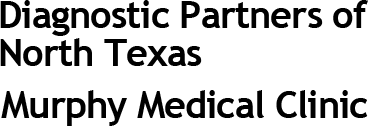Thyroid Disease
Hashimoto’s disease
Hashimoto's disease is a condition caused by chronic inflammation of the thyroid gland. The resulting inflammation often leads to hypothyroidism, an underactive thyroid gland. The condition is also known as chronic lymphocytic thyroiditis or autoimmune thyroiditis. The most common cause of hypothyroidism is Hashimoto's disease.
The thyroid gland, located in front of your neck just below the voice box (larynx), produces two hormones namely thyroxine (T4) and triiodothyronine (T3) that regulate body metabolism.
Thyroid hormone production is controlled by another hormone called thyroid-stimulating hormone (TSH), which is released by the pituitary gland, a pea-sized gland located in the brain. With Hashimoto’s disease, the immune system produces antibodies that attack the thyroid cells and damage your thyroid gland, making it unable to produce the thyroid hormones that the body needs. This results in hypothyroidism.
Hashimoto’s disease is most common in women between 40 and 60 years of age. People with family history of thyroid disease, certain medications or viral infections may have an increased risk of Hashimoto's disease. Other autoimmune disorders such as vitiligo, rheumatoid arthritis, Addison's disease, and pernicious anemia may be associated with Hashimoto's disease.
At first, you may barely notice any symptoms, but as the disease progresses over time, the thyroid becomes enlarged, a condition known as goiter. This may cause the front of your neck to appear swollen. Some patients with enlarged thyroid gland may feel fullness in the throat and may rarely have pain. If hypothyroidism develops, there may be some mild or no symptoms at all. Common symptoms of hypothyroidism include fatigue, weight gain, intolerance to cold, a slowed heart rate, muscle or joint aches and pains, pale dry skin, constipation, depression, heavy menstrual flow or irregular periods and fertility problems.
Hashimoto's disease is diagnosed by symptoms, medical history, physical examination, and one or more blood tests to confirm the diagnosis. During a physical examination, an enlarged thyroid gland may be detected. Laboratory tests include blood tests to measure levels of thyroxine, or T4, and thyroid-stimulating hormone (TSH) in your blood. The blood tests also usually include an analysis of antibodies (anti-thyroid peroxidase antibodies).
If there is no evidence of hormone deficiency, simple monitoring for disease progression may be enough. In the presence of hypothyroidism, you may need replacement therapy with synthetic thyroid hormone to restore a thyroid and metabolic functions. The exact dose depends on age, weight, severity of the underactive thyroid, associated health problems, and use of other medicines such as cholesterol-lowering drugs that can interact with synthetic thyroid hormone.




